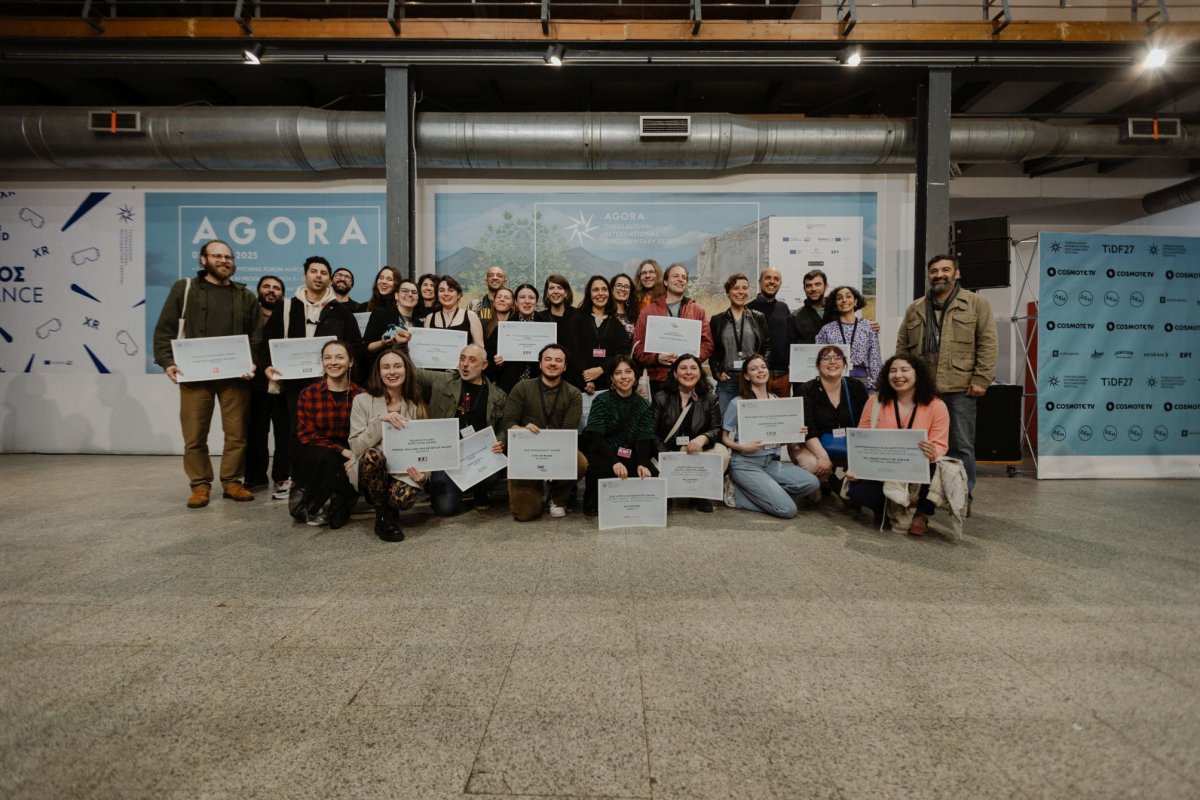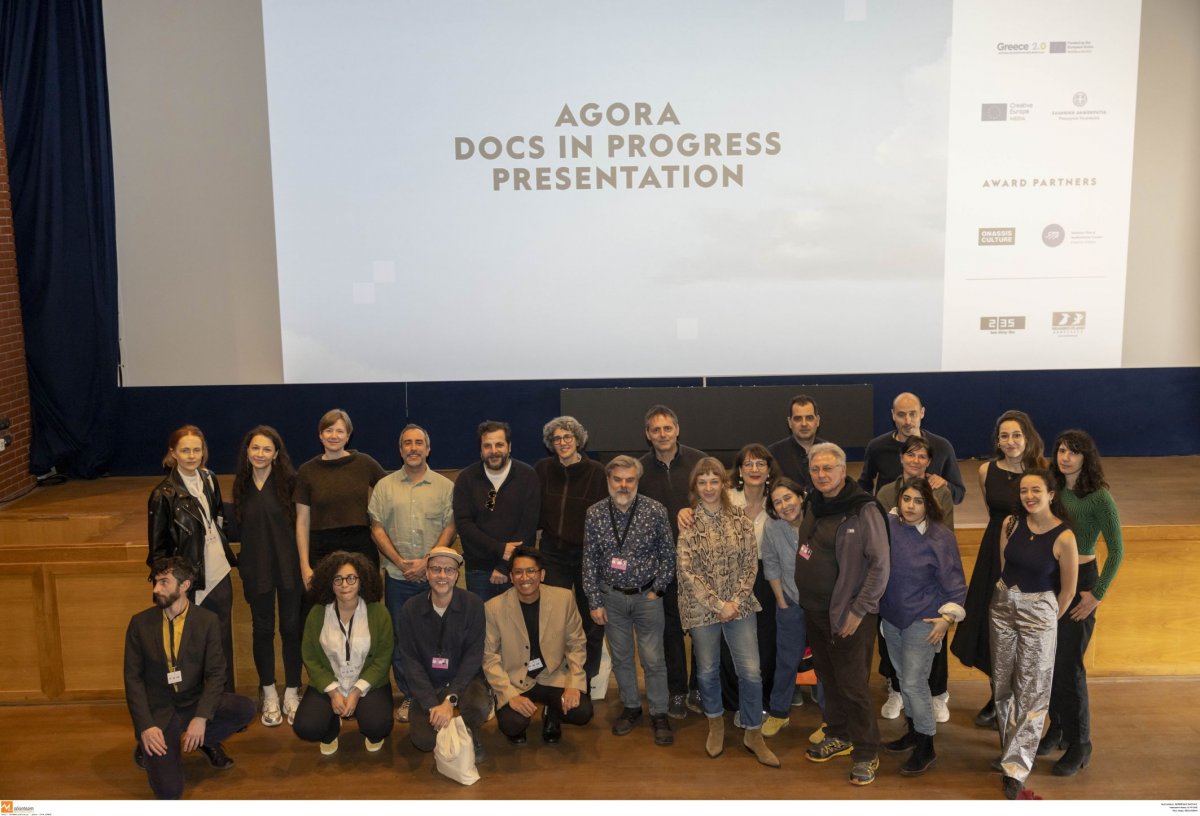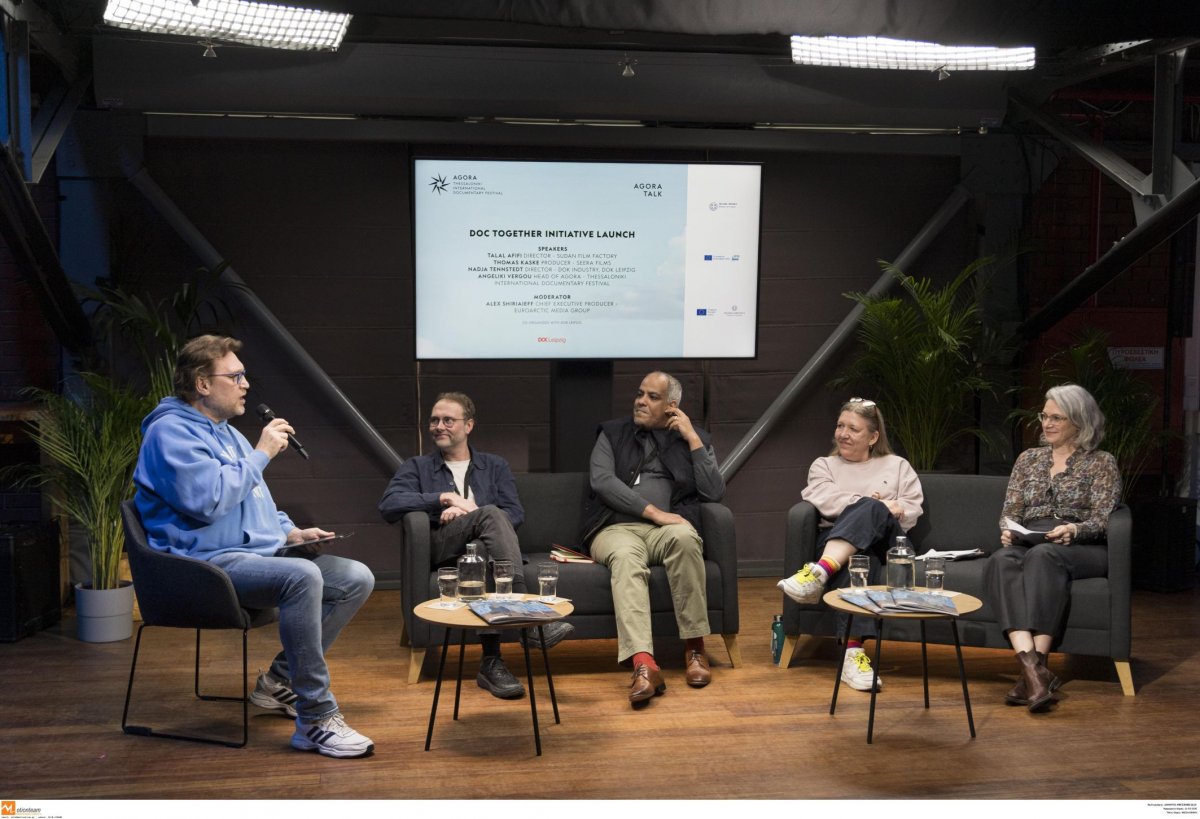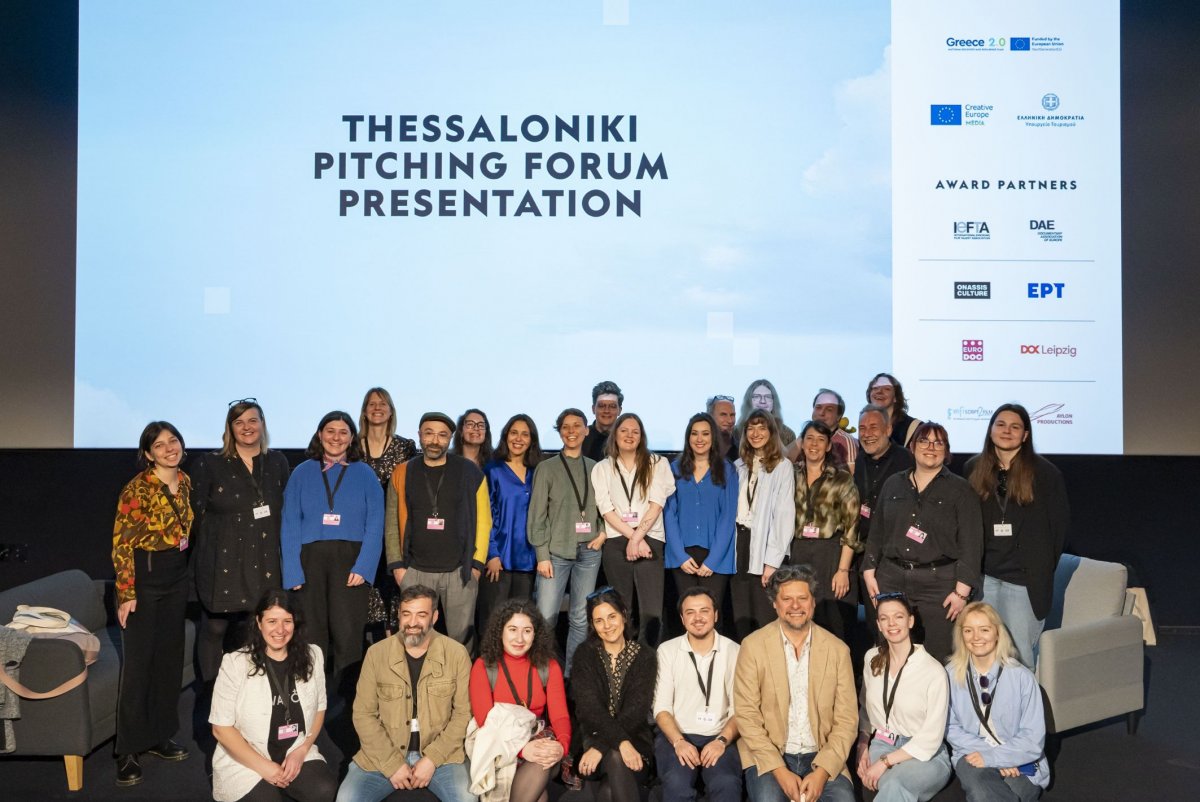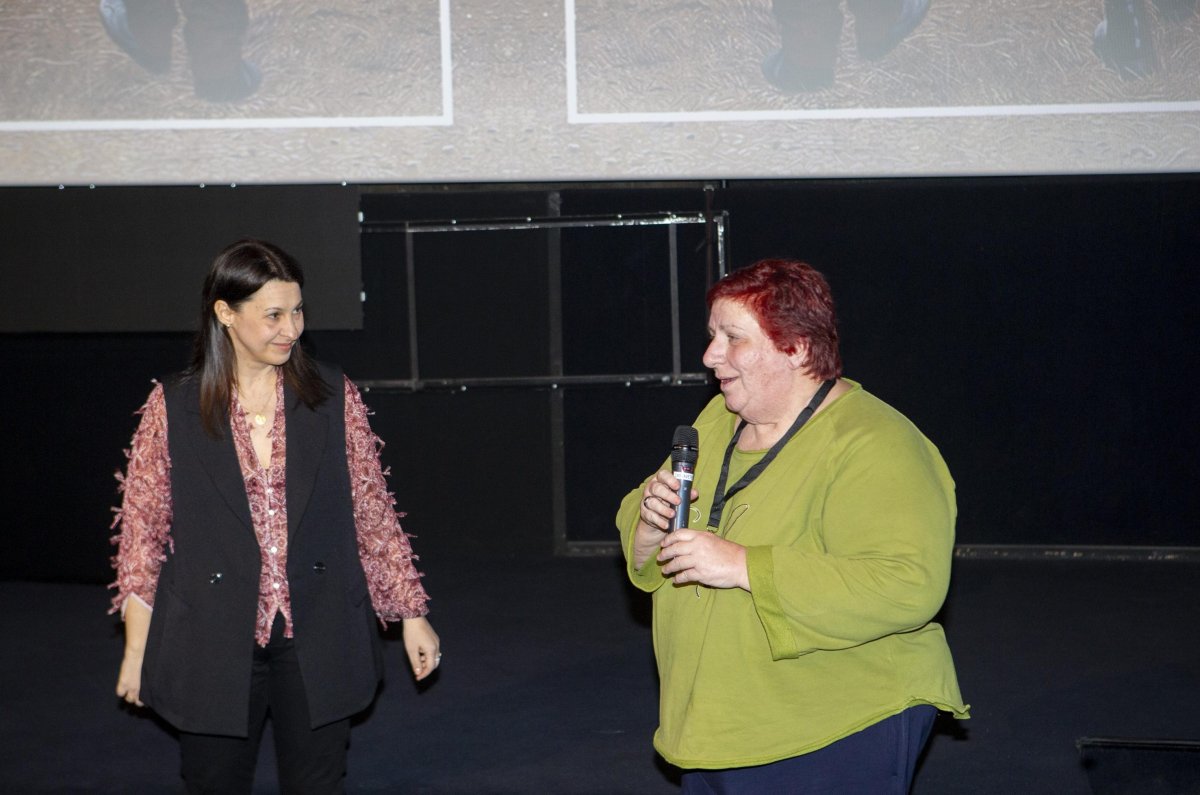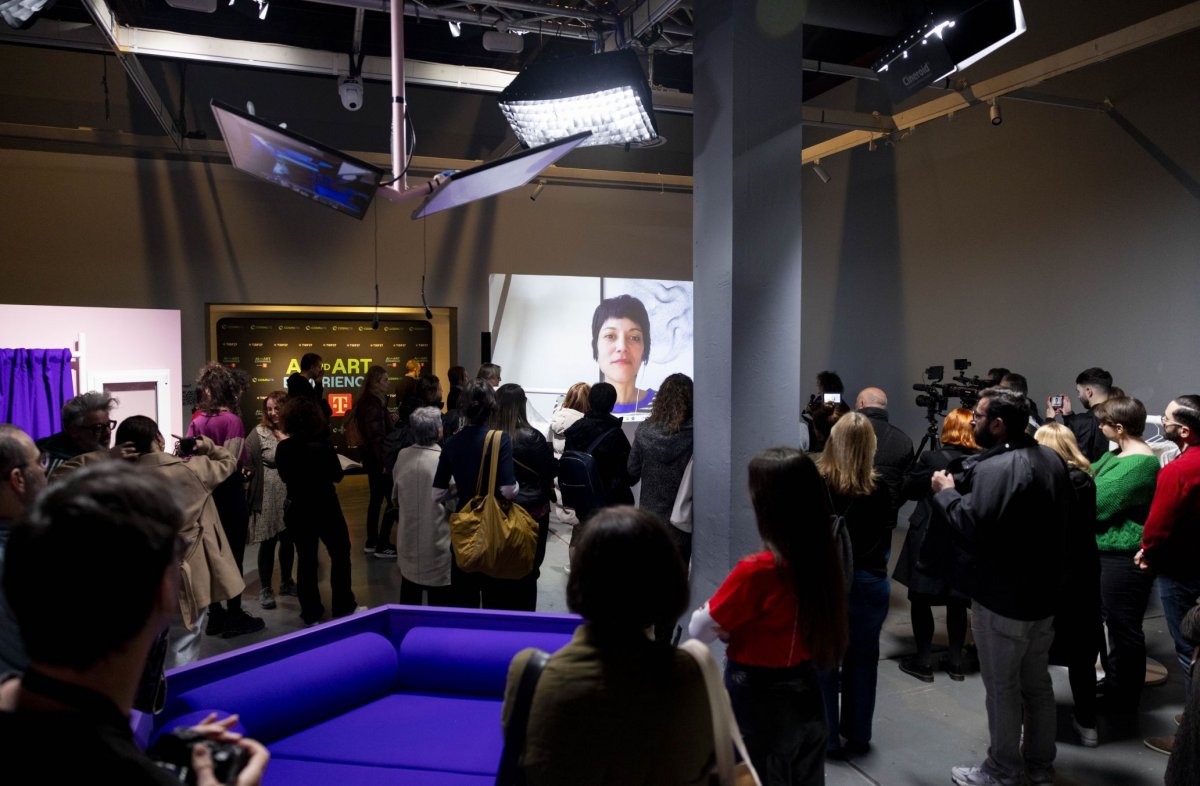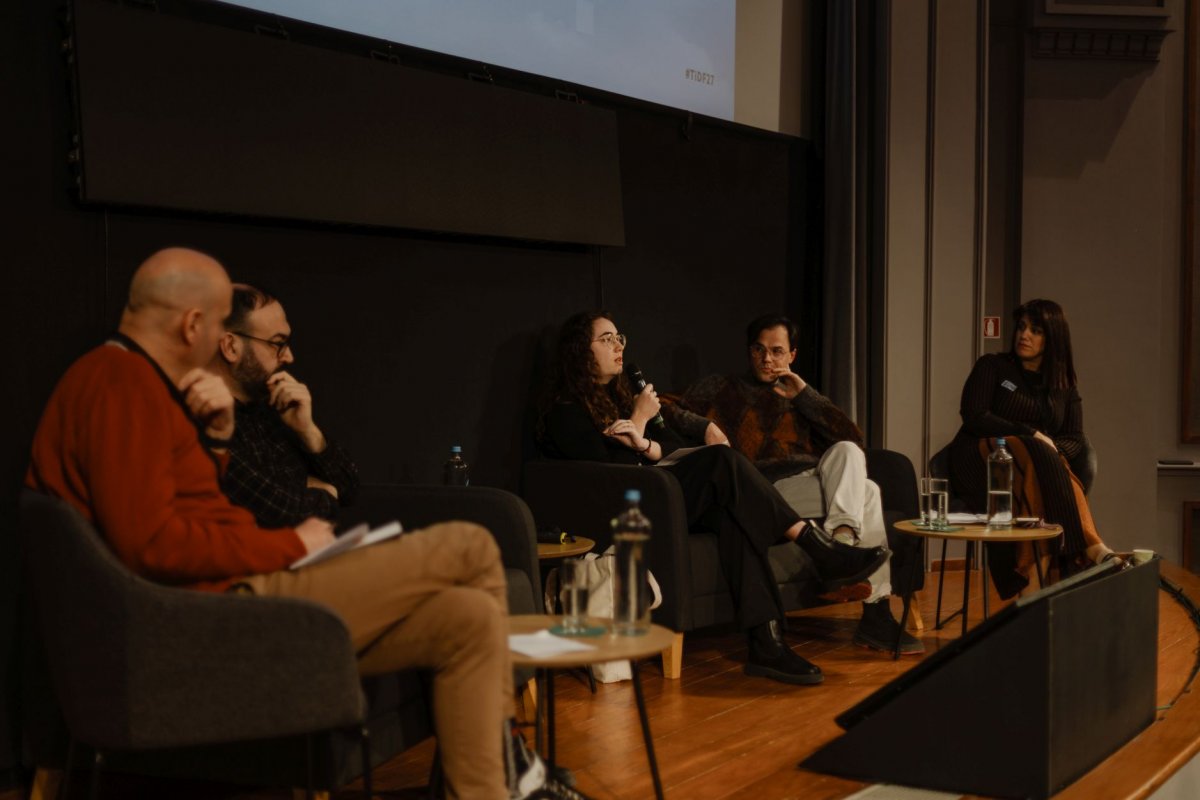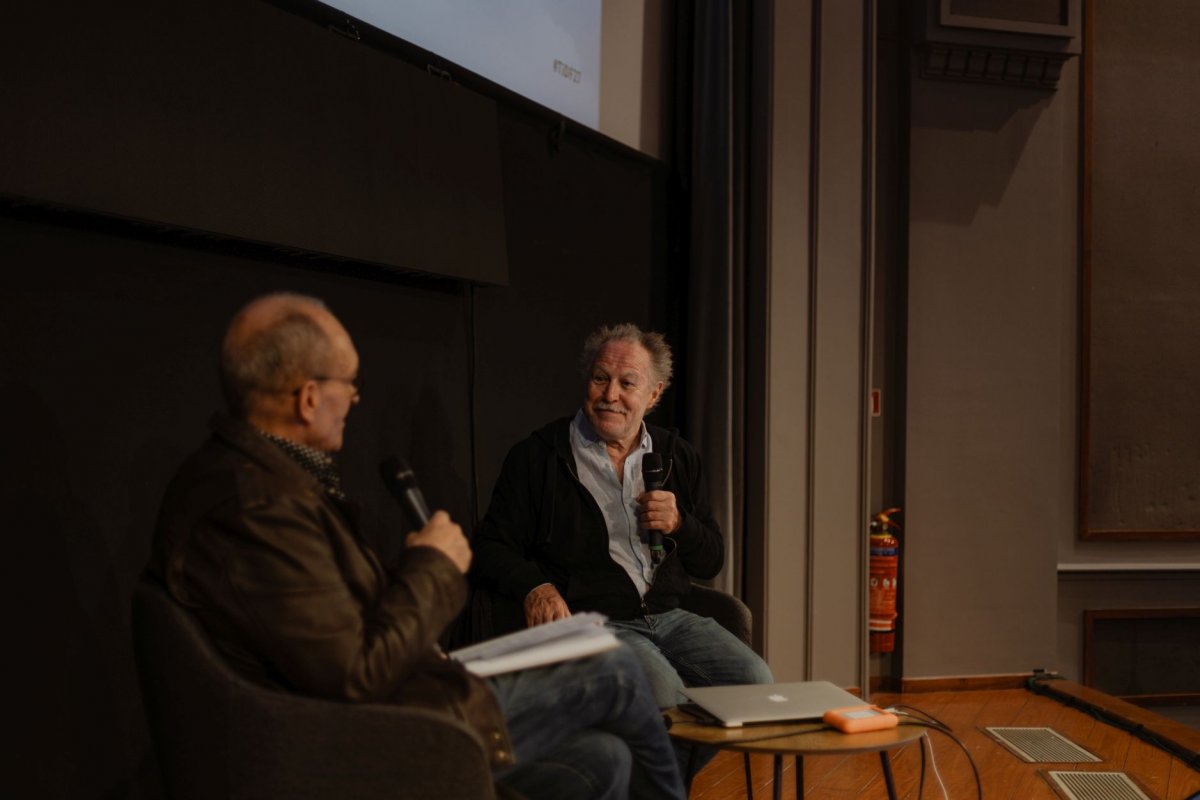Today, Thursday, November 27th 2003 at Warehouse C of the Thessaloniki port, two directors whose films participate in the Balkan Survey section gave a press conference in the framework of the 44th Thessaloniki International Film Festival. Dervis Zaim, whose first film “Somersault in a coffin“ was awarded with the Silver Alexander at the 38th Thessaloniki International Film Festival, participates this year in the Festival with the first Turkish-Greek coproduction “Mud”.
Speaking about his film, Dervis Zaim said that he used numerous narrative strategies including symbolism: “It’s true that I employed symbolism, as well as realism and hyper-realism in my narrative method. The reason I made this choice is because it provided me with a more sincere and complex framework to work within. Indeed, I use symbolism because this way I am able to closely examine my topic. From the beginning, I was aware of the fact that my film’s topic was unique in Cyprus. This is why I’m explaining a bit more of the details of the framework within I worked, the concurrent use of realism, hyper-realism and symbolism, in order to create a more effective and impressive background for the film. I also employ conveyance. Illness, in the film, is a conveyance that allows me to expose my thoughts. Why illness? Because in my opinion, the problem in Cyprus is a traumatic experience on the psyche of the Cyprian people. That’s why I use illness as a metaphor. Every character of the film suffers from a form of illness, which they try to heal. I use illness to express my views and to elaborate on the relationship between the individual and history or society and especially between the individual and the myth”.
Military camps, mud and Cyprus
A military camp plays a vital role in his film. “The camp isn’t situated on the border of the Greek and Turkish sides, but rather in the middle of the Turkish side. There is mud in the middle of the camp and all around it. Because of this mud, the main character of the film desires to alter the borders. It’s precisely the object of this character that I portray in the film and his desire to end his illness. He takes the mud and applies it to his neck to cure himself”. “The mud in the camp has much better qualities than the mud that surrounds it. This is the reason for the dramatic clash in the framework of the narration. I used the mud metaphorically, symbolically and at times even surrealistically to develop the dramatic conflict throughout the film. All the characters seek a cure for their illness. I chose this situation because I have a clear understanding of the traumatic situation in Cyprus and I wanted to portray it in my film. The film, though, doesn’t contain any autobiographical experiences. The fact is that I’m a Turkish-Cypriot, I grew up there, I’m well aware of the situation and the mood and it affects me, but I tried to limit any autobiographical references in the film because it wasn’t my intention to portray personal experiences”.
Fortunately, no censorship
Dervis Zaim noted that he had no problems with censorship in Turkey. “There are 20 copies currently being distributed in theatres. The film will be screened in both sides of Cyprus next month. Internationally, it has been well received by critics and the audience alike. In Turkey, though, the critique isn’t very favorable. This is because in Turkey there exists a particular notion about the Cyprus problem. The view is distorted and therefore they react in this particular way. Additionally, due to its narrative strategy, the aesthetics of the film are new to Turkish cinema. I believe that if the film is broadly played throughout Turkey it will receive positive reviews”.
Greek-Turkish affairs
Mr. Zaim also spoke about the Greek-Turkish affairs and Turkey’s European aspirations saying that, “I believe that Turkey’s European route will help the development and production of culture in the country. Turkish cinema suffers from the lack of funds. Therefore, when Turkey enters the EU, funding capabilities will increase. Turkey is in the position to converse, compare and examine different cultural traditions. It’s history and geographical position grant it this capacity. It can become a bridge between different cultures. I believe that its incorporation in the EU will greatly assist towards this direction”.
As for the relations between the two countries he stressed that he is a cinematographer and not a politician. “I can’t speak for the official opinion. I believe, though, that the improvement of the Greek-Turkish relations will also assist the problem in Cyprus. However, the main creed in Cyprus is war. We have to change this atmosphere to one of peace. Not everyone agrees with this but I think it’s the only way towards a solution. We must all agree that we must live together side by side for both historical and geographical reasons. I believe that my film, this humble work, can contribute towards this. Art and culture can affect society even if it a long painstaking process. I feel that I’ve done my duty towards my country”, he concluded.
From Romania to Thessaloniki
Romanian director Christian Nemescu participates in the Thessaloniki Film Festival with his short film “C block story”. As he said, he filmed it last year, which was his senior year at the Romanian School of Cinematography. “I tried to avoid making a typical Romanian film about social tribulations, but rather, a film about feelings which is something that I’m more familiar with. I don’t think that it will be shown in my country because Romanian distributors are uninterested in short films. It’s basically directed towards festivals. I received an offer from an American distributor and we are currently negotiating. I have several ideas in mind for the future, but as a recent graduate from the School of Cinematography, I’m unable to find the funds”, he concluded.




